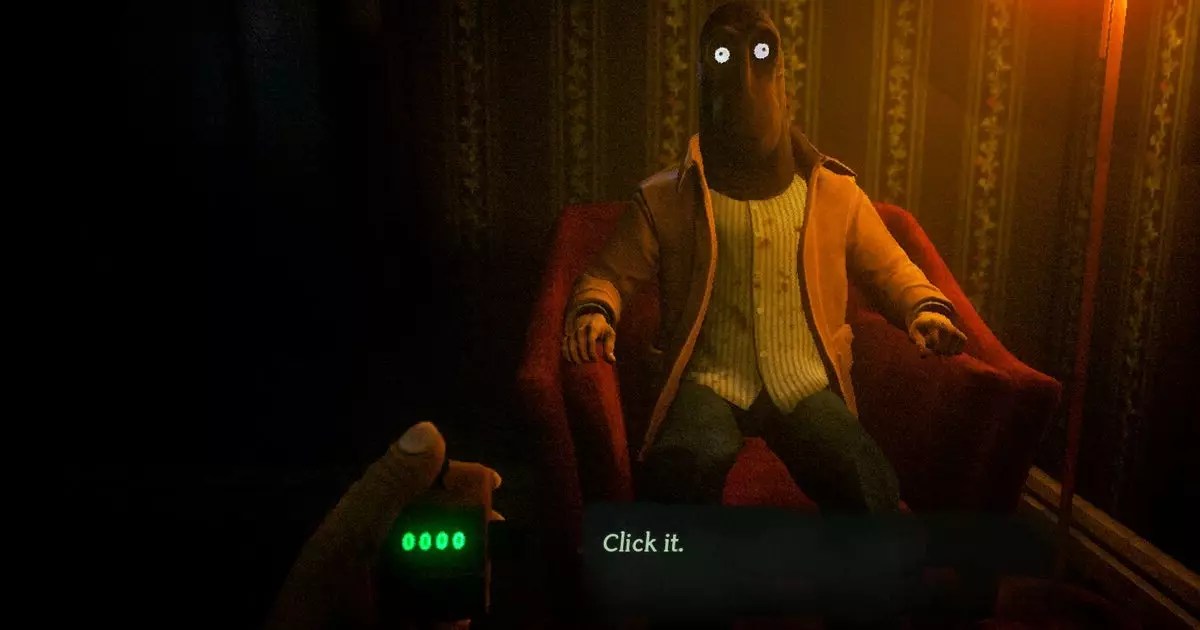Upon starting Clickolding, players are immediately thrown into a bizarre encounter. The protagonist finds themselves in a room with a man sporting a peculiar mask that resembles a distorted version of Joe Camel. The player is handed a clicker counter and is instructed to click a certain number of times. This initial setup sets the tone for the entire experience, urging players to question their own actions and motives.
As the game progresses, the player is confronted with repetitive clicking tasks that slowly start to take a toll on their psyche. The man with the unsettling mask adds a layer of discomfort to the gameplay, making every click feel like a daunting obligation. The constant pressure to click and meet certain quotas amplifies the feeling of unease and drives the player to question the purpose behind their actions.
Through the repetitive act of clicking, players begin to form superstitions and rituals in an attempt to make sense of the seemingly endless task. Experimenting with different clicking techniques and strategies becomes a way to assert control over the situation, even if it’s just an illusion. The game cleverly plays with the player’s sense of agency, blurring the lines between obedience and rebellion.
As time passes and the clicking continues, a sense of time dilation sets in. The player becomes hyper-aware of each click, measuring the passing seconds and minutes based on their clicking speed. The act of clicking transforms from a mindless task to a conscious effort, highlighting the fine line between monotony and mindfulness. The game’s ability to manipulate the player’s perception of time is a testament to its immersive qualities.
Underlying the seemingly trivial act of clicking lies a deeper existential theme. The player is forced to confront their own motivations and desires, questioning the significance of their actions in the grand scheme of things. Clickolding serves as a reflection of life’s repetitive nature, where mundane tasks often overshadow deeper existential questions. The game challenges players to find meaning in the midst of monotony.
At its core, Clickolding presents a twisted form of self-imposed BDSM, where the player willingly subjects themselves to humiliation and control. The power dynamic between the player and the masked man creates a sense of discomfort and submission, mirroring real-life power struggles. The game’s ability to evoke such visceral emotions speaks to its effectiveness as a psychological thriller, pushing players to their limits.
Clickolding is a masterful exploration of human psychology and existential themes wrapped in a deceptively simple gameplay mechanic. Through repetitive clicking tasks and unsettling visuals, the game forces players to confront their own motivations and desires. The art of clicking is transformed into a profound existential journey, challenging players to find meaning in the mundane. Clickolding stands as a testament to the power of indie games to provoke thought and evoke emotion in ways that larger titles often overlook.


Leave a Reply